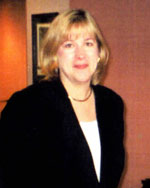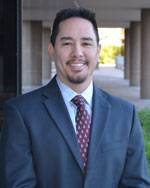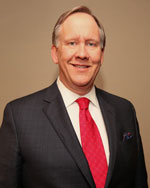The days when a young tax professional at a corporation worked his or her way up the ladder and stayed with the same company for an entire career are falling by the wayside. True, those days are not disappearing entirely, but most tax professionals move among several different opportunities at various firms in their careers—and not always out of choice. Mergers and acquisitions, bankruptcies, spinoffs, outsourcing, shared services, changing demographics, and cost-cutting restructurings are all part and parcel of life in the fast lane for tax professionals in the twenty-first century. We convened a roundtable to discuss these employment developments and invited these TEI members and experts: Susan Bauer, tax director at Fossil Inc., a large international company with a retail, distribution, and manufacturing focus; John Jung, a tax executive search professional at Govig, a recruiting firm specializing in placing tax professionals nationally and internationally; Louis Mestier, vice president of tax for Hanger Inc., the largest orthotics and prosthetics provider in the United States; and Caleb Standafer, senior tax director and associate treasurer at Teledyne Technologies, a provider of advanced technology solutions. Roundtable No. 8 was moderated by Tax Executive Senior Editor Michael Levin-Epstein.
Michael Levin-Epstein: Why don’t tax professionals generally stay with the same company for an entire career any more?
Caleb Standafer: Sixteen years ago I had a surprise transition. I was fairly well networked, and it was relatively easy to find a new position. I thought it might take six months, but I found consulting projects in a few weeks, and that eventually led to a job within three months. I think that acquisitions can make a person change jobs. You can be acquired by a foreign company, and your job responsibilities can become substantially diminished. And while you may still have a job, it’s not what you signed on for and not what you’ve worked so long for. That’s one aspect—mergers and acquisitions—can bring uncertainty into a tax professional’s life.
Susan Bauer: Another element is the strong focus on cost-cutting, reorganization, and outsourcing. We’ve seen outsourcing in the technology area—entire departments are outsourced outside of the country. But in the tax field, different areas might be outsourced. So, for example, if you’re a tax legal professional in addition to being a tax professional, which many vice presidents are, that may be something that becomes outsourced, and as was just discussed, the role is then diminished, and then the question is, “Do we need this highly educated and highly experienced person in this role when the role no longer requires that?”
Louis Mestier: For a number of years now, there have been a lot of mergers in many different industries—both large and small—and two tax departments or even more sometimes come together. The parties will want to leverage all they can, and tax departments may be cut, and you may have two Number Ones in a tax department, and there is a need for only one Number One, so there are changes that take place.
Bauer: I had one more comment, with regard to the shared service center phenomenon that’s occurring in many companies. What’s happening there is they’re taking transactions that are more routine and putting them into shared service centers, and some of these areas have traditionally been part of the tax function such as sales and use taxes and property taxes and other miscellaneous areas where, again, this is another factor that diminishes the role of the senior tax executive.
John Jung: All those aspects that have been mentioned—mergers, acquisitions, spinoffs, bankruptcies, the ups and downs of the cycles of business—all are overt aspects. Some of them have been around for the last twenty to thirty years, depending on where that cycle is. I think another aspect that is somewhat hidden or not as overt is the fact that there is realistically a lot more VPs, head-of-tax talent available now than ever before. This goes back to that baby boomer aspect—that third bubble of the baby boomers. That’s the biggest bubble, and it is hitting now. So a lot of people that want to work longer or have to work longer are staying in the marketplace. It is causing a supply and demand issue—too much supply of great, very qualified VPs and Number Ones of tax, not enough roles to go around.
Levin-Epstein: If you were advising someone who has been at a particular firm for, say, ten years, and they were looking up at a ladder that appears extremely difficult to climb, what would you tell them?
Bauer: I think pretty much everyone should have a LinkedIn profile—that’s how you get found for new opportunities, and it’s a great way to get to know other professionals. Maintaining a presence in the TEI network also is a really great idea; one of the greatest benefits of the Tax Executive Institute is you are easily able to network with your peers.
Standafer: I think being willing to move is key. Some people are locked into a city, either for family reasons or their spouse has a job there; this makes it really difficult to move. But, for me, moving a couple of times meant big steps up. It gives you more experience, it gives you exposure to other groups of people, and it broadens your network.
Mestier: Also, not waiting until you get to that ten-year point to build your network is important. You have to know what’s going on not only in your market but in different markets, as Caleb said. I’m from Austin, Texas, which is not really a big market, but I maintain regular contact with the leading tax placement persons here. I like to keep up with it so I can find TEI membership opportunities for new businesses or new positions for people who come to town, but also to see what’s out there and to keep my finger on the pulse of what’s going on in the market and if there are other possible opportunities, because you just never know when you need them.
Jung: I use a doctor analogy, where we go for checkups. So whether it’s Big Four partners, mentors you’ve worked underneath in the past, recruiters, or TEI, you want to consistently keep your finger on the pulse of what the market is doing. It fluctuates: Sometimes international tax people are the hottest thing on the market, other times they’re not; the same thing with state and local tax (SALT) issues and sales and use tax matters, whether it’s recruiters, mentors, or just other people. As Louis said, maintain that network, keep abreast of what’s happening, because things can change quickly. If you wait, you’re playing catch-up. You want to be ahead of the curve. So keep your eye out there.
Levin-Epstein: How do you determine whether your job is somehow going to be reorganized or if you’re going to be laid off?
Mestier: One thing, obviously, is reaching outside the tax department to find out what’s going on in operations, because many times downturns, especially in your business or in your industry, can cause the company to think about outsourcing tax or outsourcing portions of tax or pushing people out in tax. So just having contacts throughout the organization helps a lot.
Bauer: It’s also important to make sure you’re invited to any restructuring or cost-cutting meetings—being part of the team—because when you’re not part of the meeting, you’re quite easily part of the solution in terms of the cost-cutting.
Standafer: Being in corporate headquarters helps some, because if there’s a merger or something —a scurrying around of activity, people checking annual reports out of the library, transportation arrangements being made—there’s usually a flurry of activity if your company’s going to merge or be acquired. So if you’re just astute and keep your head up, if you’re friends with the guys who run the motor pool or make arrangements for executive travel or the librarian, you’ll pick things up.
Jung: Louis nailed it: Knowing other people within your company. It goes back to that fact that we are all describing networking, and it doesn’t have to just be in tax. People are going to know what’s happening, so if you have trust, relationships in other sectors, that will tell you which way the winds of change are blowing.
Levin-Epstein: As everyone says, no one is indispensable, but what kinds of skills, abilities, and talents can you develop to make yourself a little more indispensable?
Mestier: One thing that I have seen more than once is the tax function, especially in smaller companies, can align with the treasury function to a certain degree. And I’ve seen a number of tax-treasurer combination titles in different places, so it’s broadening your skill set, making yourself more valuable, not just in corporate but also out in the field, being more customer-service oriented, so that there is more of a need not just in corporate but also in the field.
Standafer: I think being helpful to everyone is key—a “nothing’s impossible, we can get it done” kind of attitude—and being a problem-solver. Because of my willingness to listen to accounting or law firms come in and make pitches, if somebody else in the finance function needs a contact at a firm, I’m the go-to guy oftentimes, because I can call up a tax partner and say, “Our company needs this or that. Who do you have?” and get a contact right away for somebody else.
Levin-Epstein: We’re talking about in-house, but in the tax field there are other possibilities besides corporate. Could you enumerate those other possibilities, especially ones that might seem a little out-of-the-box for tax professionals?
“To put yourself out there in the best possible light, make sure that you’re relevant, that, for example, you’re a whiz at Excel and all the different programs that are used in the profession now.” —Susan Bauer
Bauer: Just about any of the financial or the accounting roles can be a fit. You could be a comptroller, you could be a treasurer, and you could be a CFO—just about any of the financial or the accounting areas. And then there are also many of us within the TEI groups that also have legal backgrounds. You could be in a law firm, or you could be in an industry that requires some kind of legal representation. Of course, there’s the tax-exempt fare, and I think John was going to probably mention the accounting.
Jung: Yeah, definitely the aspects of going back into the Big Four or a regional firm, I think are the safety nets of all tax people, good, bad, or indifferent. It’s very rare that a regional firm or a Big Four will not hire that person in some shape or form. I think the tax industry has that over most other areas like accounting, finance, audit engineering—they always have that fallback. The problem is, it’s heavily into sales, and that’s a different animal, so it’s not the most enjoyable type of work. Most of the people that start out in Big Four and leave it, they don’t ever want to go back. Some do, successfully, but I think that’s an anomaly. I have seen a select few be able to pick up the treasury or the chief financial officer route, but it’s very difficult because generally, the CFOs, financial, treasurers, and so forth, they come up together in the ranks, so they kind of stick together, but it does happen occasionally.
Standafer: Regarding out-of-the-box roles, one thing I’ve seen is tax people being the chief financial person for a family office for a wealthy family. That was out of the box to me and a surprise, but I know some people in TEI who’ve done that.
Mestier: Because of the link, especially recently, between information technology and tax, there’s a lot of opportunity for people, I think, who have kind of veered in that direction in their tax function and know how IT is supposed to work, that the tax software firms clamor to have people in this role also, especially if they have communication skills and people skills that John was talking about earlier. They make a good package for the IT and the tax software, especially financial and especially tax software companies, to take a run at.
Jung: That’s a very good point, Louis. IT tax people have become more and more in demand, and they’re still hot. We don’t see a lot of them going in-house yet, but we’re seeing that more and more every day.
Bauer: As you mentioned, you do want the very talented folks going into the IRS and the Treasury jobs. I don’t think we made that point.
“I ask all my clients what they want to see in a résumé, and resoundingly across the nation, across the world, granular details, measurable accomplishments, pointing out what you’ve been doing that’s made a difference—that’s what works. Frilly language like ‘I’m wonderful at …’ No one wants to read that.” —John Jung
Standafer: Our focus has been how do we become masters of our careers, but there are times when, even when we think we are masters of our careers, we can still get surprised. One thing I think we ought to talk about is when you are surprised—how are you going to feel, and how are you going to navigate that? The emotions just come rushing over you if you’ve got a surprise transition, if you’ve been let go, or your company got merged and your job no longer exists. There are all sorts of feelings—of shock and anger and self-doubt. That’s something that we don’t talk about as a profession—we’re not introspective—but it seems to be something that’s important, because it’s reality.
Jung: I’m talking to folks at least every week, sometimes one or two a day, who are going through exactly what you’re mentioning, Caleb. We’re people. We’re human. You’re talking about a huge loss. In some ways it can be looked at as the death of a loved one, because it was your career, your blood, sweat, and tears that you’ve poured into this thing either going away or being taken away from you. Yeah, it’s shocking. What I usually tell people is “Embrace it. Mourn it. It could take a few days, it could take a few weeks, but give yourself that time to understand and deal with those emotions. Putting them off, burying yourself into trying to search for a job, those feelings are going to come back later, and I can speak from firsthand experience in my career, and I’ve talked to a lot of people around it—it’s frustrating.” They get angry. But then they get scared. And it is a scary situation out there in this market right now. It is not easy. It is not like ten years ago, where if you’re out of a job, you can take a few months, you talk to some CFOs, you don’t even need a raise in pay, you just find another job. Nowadays it’s a lot of work and effort. I talk to people every day, and they’re like, “OK, John, I spent forty-five minutes on the computer. I’ve applied to these things. What do I do now?” Nothing. There’s a point of diminishing returns. Go have fun. You’re going to drive yourself nuts if you try to search for a job eight hours a day. You know your point of diminishing returns. Also, embrace the fact that you probably haven’t been out of work in twenty years—so go on that trip you’ve been putting off, go build that piece of furniture you’ve been promising your wife. Do those things, because when you do get back to work, you’ll be kicking yourself. It’s a fine line, but it’s an emotional roller coaster.
Mestier: Also just realizing, especially when there’s a layoff situation, when it’s people across the organization, a swath, that the criteria they use to determine who’s going to be laid off has nothing to do with you personally; it’s numbers on a spreadsheet. I’ve been laid off suddenly before and ended up finding a much better position for me after I got through the process—both processing the feelings and just the whole process of networking and finding a new position—but it rarely has a close correlation to what matters in the position itself.
Standafer: Also, prepare yourself financially. Have a cushion so you aren’t terror-struck at the thought of making your mortgage payment the next month. Just try to be prudent, and that helps calm your feelings a lot.
Bauer: When you’re preparing that financial nest egg, you want to make sure it’s for a sufficiently long period of time, because it can easily take six months or more for high-level searches. You’ve got the site visit, the interview. You’ve got to go through a number of rounds, and sometimes you have to be signed off by the most senior executive, who may have heavy travel in his schedule. So it’s definitely something you need to be concerned about.
Jung: All great points. Historically, I’ve told people, for a Number One position, you’ll be out of work for a month, maybe three months tops. That’s changed in the last two or three years. Now I’m seeing minimum six months. Unfortunately, quite a few people hit a year and go past that. It’s very difficult. Depending on where you live, if it’s a hurricane area or a tornado area, you get certain things prepared. You have food, you have water, you have batteries, you have all these things prepared. That’s kind of like the preparation for if you ever hit a disaster like this, of your career changing dramatically. Having those things ready, knowing how much money you have set aside for that and then dealing with it.
Levin-Epstein: How should you structure your résumé for maximum impact?
Standafer: When I’m hiring, I look for well-defined accomplishments that are measurable. If I call up a reference and say, “Did this person do this? Tell me yes or no,” it’s got to be pretty concrete.
Mestier: I agree. Showing that you have a track history of bringing value to the shareholders—whether it’s cash, whether it’s tax provision—that you can deliver and then also show leadership through those projects. And through a résumé, you can definitely show leadership. I think one of the things you’re seeing at the lower levels right now is a lot more job-hopping, especially from millennials. I think from the senior tax people, you see a whole lot less of that. But compared to Caleb, for instance, my longest tenure at a company—and I’ve been doing this for 25 years, I guess—my longest tenure at a company was seven years. So it seems like it’s kind of the new normal, that turnover is quicker even at a senior level nowadays.
Bauer: One of the more important things to add on your résumé now is also your technical skills from a technology standpoint. To put yourself out there in the best possible light, make sure that you’re relevant, that, for example, you’re a whiz at Excel and all the different programs that are used in the profession now. And you want to make sure that you’re relevant to the skills that the company itself is hiring for—so when you’re selling, you don’t necessarily just say, “I did this in the past,” what you tell them is “This is what I can do for you in the future. I see your problems, and this is how I can help you achieve results.”
Jung: I ask all my clients what they want to see in a résumé, and resoundingly across the nation, across the world, granular details, measureable accomplishments, pointing out what you’ve been doing that’s made a difference—that’s what works. Frilly language like “I’m wonderful at …” No one wants to read that.
“Not waiting until you get to that ten-year point to build your network is important.” —Louis Mestier
Bauer: Also on the résumé front, with your LinkedIn profile you can add whatever you want, so you can have as much information there as possible. You can keep your résumé short, to the point, hitting those granular details that John is mentioning, but then still have the opportunity to say those extra things you want to say in the LinkedIn profile.
Levin-Epstein: Anything else you’d like TEI members to know about?
Bauer: I would say that corporate restructuring, cost-cutting, it’s just good business. It’s going to keep happening. As a tax professional you’ve got a lot to offer. You’ve got a lot of value to bring to the table. It’s just so important that who you work for understands the value you’re bringing.
Standafer: I think TEI ought to have a slogan of “It’s your career,” with “your” underlined, to emphasize you’re in charge of what happens and how to make that happen, and TEI can be an important part of that—to network, expand your knowledge. It’s an opportunity to volunteer and demonstrate your leadership skills—to run a P&L for a chapter, for example, shows leadership. So managing your career is important, and I think for people who believe that their technical skills in the tax profession are key, I think it would be good for them to realize that they’ve got to manage their relationships, work on their personality and interpersonal skills, the soft skills, and they’ve got to be a salesperson for themselves. TEI can help them, and they need to read, to network, and do all the things other professionals do to extend their career and manage their career.
“The emotions just come rushing over you if you’ve got a surprise transition, if you’ve been let go, or your company got merged and your job no longer exists. There are all sorts of feelings—of shock and anger and self-doubt.”—Caleb Standafer
Mestier: The lifetime career at one company is over. There are always the exceptions with that; I know some people who have been around at companies from when they started to when they retire, but it is so the exception nowadays. Part of being a tax professional and part of looking out for your best interest is to, as Caleb said, start your network now. Don’t wait until you have to have it. Build it now. Nurture it. Maintain it. Then, keep your résumé current, keep connected with the people outside of tax, like recruiters that may help you in the future, and keep them close to the vest. Just know that you, in your career, are probably going to be laid off at least one time, for any number of reasons that have nothing to do with your job performance. It’s how you rebound from that setback that can really set up better opportunities for you, both in the short and the long term.
Jung: All great points, but let me expand a little bit on Louis’ comment that when you have to transition, it is not a reflection on you. If and when you get caught up in something beyond your control and you are actively looking for a new career, it’s not a reflection on you. If you got to a leadership role, there was a lot of good to what you’ve done in the past. Mourn it, deal with the emotions of it, which are difficult. But as quickly as possible, get that positive bit of energy going back, get that leadership swagger back, and get out there and attack it. Be positive. Learn from whatever happened, but that’s in the past. Move forward as quickly as possible. The ones who can do that more quickly will find those good roles, because right now there are a lot of the same people looking for the same thing and not enough of those same things out there. So, be positive. You guys will be successful as you’ve always been.








